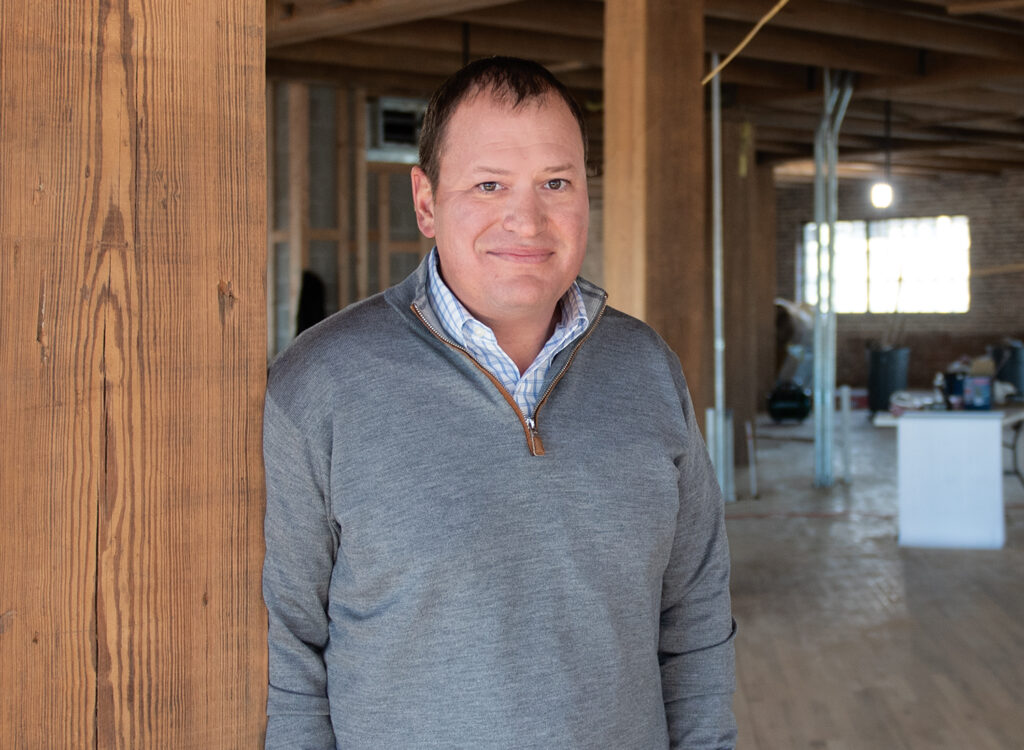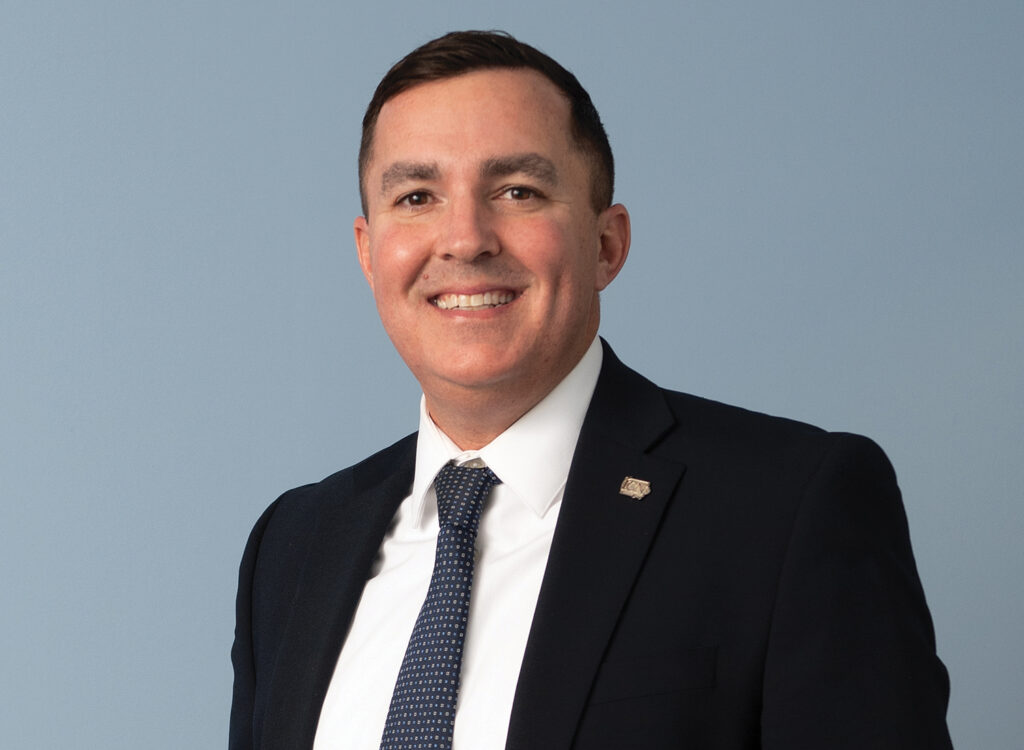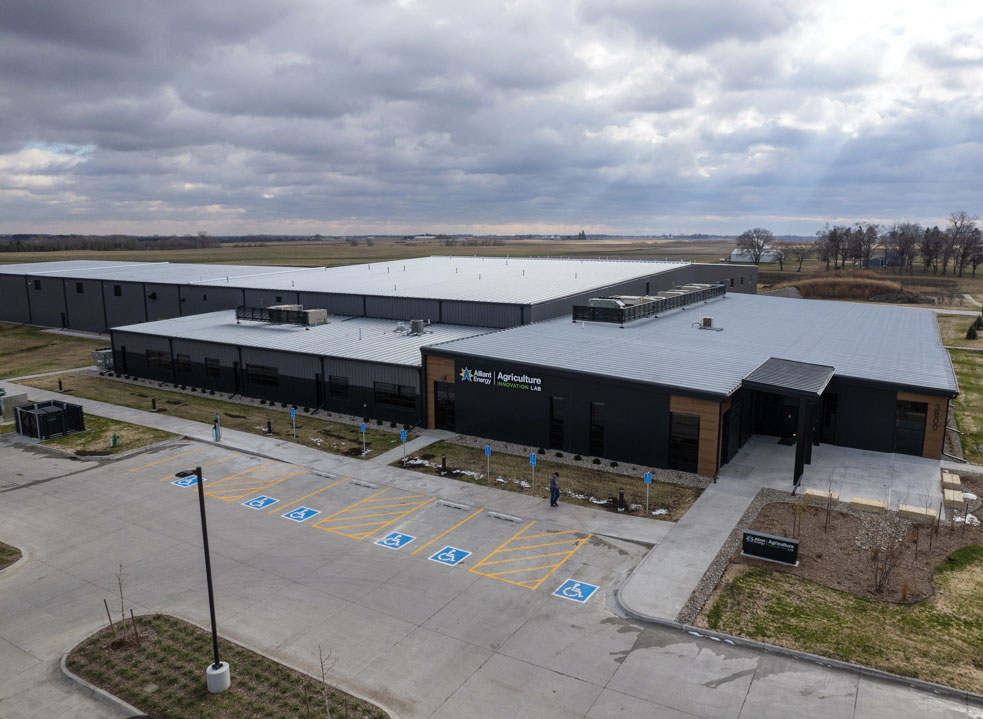Next Steps
Reynolds aims for improved workforce, tax code, quality of life

PERRY BEEMAN Jan 16, 2019 | 3:15 pm
13 min read time
3,172 wordsBusiness Record Insider, Government Policy and LawBefore the Iowa Legislature convened on Jan. 14, Business Record Editor Suzanne Behnke and Managing Editor Perry Beeman interviewed Gov. Kim Reynolds, now elected to her first full term as governor, in her formal office at the Capitol about issues that could come up this session. The focus was primarily on the priorities of Greater Des Moines business groups.
Here are Reynolds’ thoughts on the issues.
You have said you want to work to expand your pro-growth, pro-business agenda this year. What specifically do you think you can get through the Legislature this session?
I’m really proud of the pro-growth policies that we have put in place over the past three years. I think we’ve come a long way in not only providing a stable but predictable business environment, and I think we are seeing that reflected in business and industry and in entrepreneurs and startups.
As I travel the state and talk to our job creators, without fail they are optimistic about the future. They are projecting growth. They talk about the number of hires they’ve brought on. But they quickly turn to the fact that “I have 10 openings right now that I could fill tomorrow [(if workers were available].” So it’s workforce, workforce, workforce. And housing is a component of that as well.
I think our economy is growing, wages are increasing. We’ve had four straight quarters of wage growth. Household incomes are growing in all but three of our 99 counties.
I believe for us to really grow the economy at the capacity that we have, I have to find workforce for our job creators. There’s not a legislator who’s not hearing the same thing.
This is an opportunity for us to work in a very bipartisan manner to implement the legislation that we passed last year, such as Future Ready Iowa.
Business groups have called on the state to expand on Future Ready Iowa and to offer more funding for things like scholarships and apprenticeships. What do you expect to get done on those this year?
It’s about funding it now. The infrastructure is in place. It’s really not about creating new programs, it’s about implementing the ones that are working. We’ve seen a lot of apprenticeship programs that are taking place across this state, especially with a lot of collaboration with high schools, which is exciting to allow our children to see there are many pathways to a great career right here in the state of Iowa. Whether that is the trades, or computer science or nursing — whatever that may be.
The other component that I think the businesses are really anxious to be a part of is the Innovation Fund, where we will match [money] if they’ve got a specific need in various regions, they can actually put together, like, a certification program or an apprenticeship program or whatever that may look like. They can work with the community and then the state through the Innovation Fund, [which] will match that investment. I think that really starts to identify the needs in various areas of the state, because it’s not the same.
They like to say the budget reflects your priorities, and that is a priority. We need to make sure we are investing in K-12 education and higher education. That’s our future. Through Last Dollar Scholarships helping individuals who are maybe working two or three jobs, or who are underemployed. We’re tied for the lowest unemployment rate in the country [2.4 percent as of November], yet in our minority communities it’s not where it should be. This is an opportunity to address some of those concerns as well and help provide some of that support system through Future Ready Iowa. A lot of these people are facing significant challenges. This can help them be successful and match them up with a job.
If you go on the Iowa Workforce Development job site, there is an app that on average has 60,000 to 65,000 jobs available every day in the state of Iowa. We have jobs looking for people. We aren’t unique. When I get together with the other governors, we probably spend 90 percent of our time talking about workforce and what we are doing in our state to address that.
We’ve seen tremendous success in apprenticeships. We’ve tripled the funding for that. We are now collaborating with high schools and building that into the curriculum. The welding program we are putting together in Manchester — that student can earn $30,000 in the last two years of high school and go right into a career and become an apprentice. Those are the kind of unique programs that we want across the state.
There has been a lot of talk about “tweaking” the tax code changes from last session and reviewing regulations to see if any could be less cumbersome. What actions do you expect this session on those items?
As I mentioned in the [2018] Condition of the State address, we have to be practical in what we can do in one year. This is not a one and done. We focused really on individual income tax reform based on the federal tax reform that was passed. If we hadn’t done anything, Iowans would have seen their taxes go up. We will continue to look at the corporate tax rate. We’re [among] the highest in the country. We need to mirror that with tax credit reform. Until we address corporate tax reform they are what make us competitive. But we need to look at this holistically. There may be opportunities to eliminate some, to tweak some of the existing tax credits, and then in conjunction with that lower the corporate tax rate. Some of them are outdated. What is the return on investment? Is there a better way to do it by bringing down the corporate tax rate?
Do you have a target?
I don’t know if we’ll do that this year. We’re in a good place. The budget is balanced, the reserves are full. We have a $127 million surplus, so we are entering the legislative session in a much better position [than in the past several years]. Even when we passed reform last year we wanted to make sure we did it in a fiscally responsible way and we can honor our commitments to education, public health and public safety. That’s the same criteria that will continue on as we are looking at maybe doing additional tax reform. We should always look for ways to reduce taxes while maintaining the priorities.
Do you have active groups in your administration looking at tax reform and the regulatory climate?
With it being a campaign year and governing, it was just not going to work out to do that. We will probably circle back and look at that moving forward. The Legislature has indicated that they were going to take a look at it after this legislative session. We looked at everything when we looked at tax reform, but it became evident we needed to be be realistic. I didn’t want to impose tax reform and then in two years come back and have to raise taxes. I wanted to be fiscally responsible, which is why we put triggers in place and we phased it in. Especially with trade, we are very mindful of the impact that could have on Iowa.
Does the state have a role to play in Greater Des Moines’ proposed new airport terminal, expansion of the DART transit system and the Central Iowa water trails project?
I think there are grants available that they could apply for. We were asked early on [by the federal government] that if infrastructure money came in to the state, what would be our five top priorities, and the airport was one of our top five that we submitted to the White House for an opportunity to have some federal dollars. We will look for opportunities to not only utilize some federal money but also state money. The more you have public/private partnerships, that’s where you see the most success in getting things done. So the private sector has a component in that, local government has a component in that, and possibly federal. I am willing to take a look and see how we could be a partner [in the airport project]. With the trails, we need to look at grant programs that already exist that they could utilize, and then we could look at whether there are opportunities that we can enhance.
What about DART’s proposal to increase the maximum property tax it can levy — set by state law — to give its board options to finance a proposed expansion and improvement of services?
They will have to make that case and we’ll see where it goes. I can tell you that one of the most unpopular taxes in this state is the property tax. That is the one Iowans hate the most. I am a former tax collector. I was a county treasurer for 19 years. I got to hear firsthand the impact that property taxes had on individuals and businesses in Clarke County.
Will you keep the backfill, the payments to local governments to make up for reduced tax collections for commercial and industrial tax collections?
I have been a proponent of that. I have said that all along. If we do eliminate it, it has to be phased out and local government needs to be at the table. They seem to be receptive to that. They know that we can’t continue. It’s really hard — some areas are seeing growth with the lower commercial property tax, and some are not. Maybe we have to look at that, too. We need to be thoughtful. We all are serving the same people. There was a lot of interest in getting rid of it last year, and it didn’t happen. I said we can’t do it after budgets are submitted [in early March]. That really isn’t fair.
Will you support the sales tax increase for conservation and outdoor recreation?
We’ll take a look at it. I’m not interested in raising taxes but if the overall bill was a net tax reduction, I would be willing to take a look at it. We’ve seen movement on legislators’ receptiveness on that. There are a lot of components, so I would have to see what that looks like in its final form before I weigh in yes or no, but I’m certainly willing to take a look at that.
What do you see happening this session on supporting K-12 education?
SAVE [Secure an Advanced Vision for Education, a sales tax for infrastructure] passed the House last session and didn’t get through the Senate. Every year it doesn’t pass narrows [districts’] ability to bond. I don’t think it will pass in its existing form, but there is a willingness to take a look at it. I am proud of the funding we put into K-12 education. We had two really tough budget years but we held K-12 education harmless and gave them additional money. We want to fund them in an adequate manner.
What about the state universities, which took a cut last year?
We’ll put money into it. They were one of the entities that had to play a role in helping us live within our means. I can’t print money in Iowa. It was less than a 2 percent [cut]. I’d love to do more if we could. Hopefully this year we can start to work with them and realign that.
House and Senate Leaders
Leaders in both parties address potential action on Future Ready Iowa and Iowa’s corporate tax rates
The Business Record reached out to Iowa Senate and House leaders from both parties about their plans in the 2019 legislative session for Future Ready Iowa and possible action on the corporate income tax rate. Here are responses to the questions as of Monday before the governor’s Condition of the State address.
Senate President, Charles Schnieder, Republican
What are Iowa lawmakers’ plans for Future Ready Iowa this year?
Employers tell us that access to skilled workers is a major barrier to economic growth in Iowa, so addressing this issue is a priority for me. I expect Gov. Reynolds will include a request to fully fund the Future Ready Iowa program in her proposed budget. I expect there will be broad support in the Legislature for this request. Additionally, I look forward to working with the governor and my colleagues in the Legislature and the business community to find other creative solutions to Iowa’s workforce challenges.
What action should be taken on Iowa’s corporate tax rate? If no action is necessary, why is that the case?
In 2018, I was proud to support the most significant tax cut legislation in Iowa history. Once fully implemented, the legislation will simplify the corporate tax code and bring corporate rates down by nearly 20 percent. Unfortunately, the 9.8 percent rate on corporate income of $250,000 and higher is still one of the highest in the country. We have more work to do to bring down income tax rates and make Iowa more competitive. I expect addressing both corporate and individual income taxes will be a multiyear project for the Legislature. As we monitor the effects of the 2018 reforms, we will explore opportunities to drive down income tax rates even more.
Senate Minority Leader Janet Petersen, Democrat
What are Iowa lawmakers’ plans for Future Ready Iowa this year?
We need to make sure job training and education are affordable for all Iowans. One of my top priorities in 2019 will be to invest more resources in initiatives that create jobs, expand opportunities and grow the economy. It’s unfortunate that some of the funding for the Future Ready Iowa bill was the result of taking money from other successful job creation efforts. That is not a good, long-term strategy. In 2019, we need to fully fund programs for them to work.
What action should be taken on Iowa’s corporate tax rate? If no action is necessary, why is that the case?
We believe it will be important to work in a bipartisan manner on a tax plan that meets these principles:
- Tax reform must be fair. Iowa’s tax system has a number of tax brackets in an attempt to make the income tax system progressive so that those with lower incomes pay at lower rates. However, according to the Iowa Policy Project, when all state and local taxes are accounted for, Iowa’s lowest income earners pay the largest portion of their income in taxes. Changes to Iowa’s tax system should address this situation and not make this problem worse.
- Tax reform must make Iowa’s tax code more transparent so Iowa can show its true competitiveness to the nation. Iowa’s tax code has become a confusing collection of credits, deductions and exemptions that has left the state with high tax rates that do not accurately reflect the cost of living and doing business in Iowa. Our tax rates appear to be among the highest in the nation — but according to the Tax Foundation, the amount paid by Iowans through our tax system ranks Iowa in the middle of the pack.
- Tax reform needs to take into account our current budget situation. We just completed a legislative session where funding was slashed for nearly every part of state government, and there is no sign the situation will be improving next year. We must not repeat the mistakes of Kansas, which passed massive tax cuts that have resulted in a continual budget crisis where schools are underfunded and has forced the state to balance the budget by stealing from road funds and raising other taxes.
- Tax reform needs to examine corporate tax credits. We have cut state funding for vital state programs that serve some of our youngest and most vulnerable Iowans. So far, corporate tax credits have been exempt from these cuts. We must determine if these corporate tax credits a good return on the investment and benefit Iowans, not just those few businesses.
House Speaker, Linda Upmeyer, Republican
What are Iowa lawmakers’ plans for Future Ready Iowa this year?
Future Ready Iowa was one of our top priorities last session, and it remains a priority as we implement it. Ensuring that Iowa employers have a workforce with the skills necessary for the 21st-century economy is critical to continued growth. Even with our unemployment at its lowest point on record and tied for lowest in the nation, Iowa employers still have more than 60,000 job openings that they are looking to fill.
To meet this need, it will require continued collaboration between our K-12 schools, community colleges and the business community. Connecting Iowa students with firsthand, real-world job experience while they are still in high school is a great way for them to gain job skills in high-demand areas, as well as a potential career after graduation. We will continue to look for opportunities to expand these efforts.
Future Ready Iowa is still in need of some funding, so we will see what Gov. Reynolds includes in her budget request and take that under consideration.
What action should be taken on Iowa’s corporate tax rate? If no action is necessary, why is that the case?
Last session, we passed a monumental tax reform bill that was the largest tax cut in Iowa history, delivering $400 million in tax relief to families and small businesses this year. As part of this tax overhaul, we reduced the top corporate rate from a national high of 12 percent down to 9.8 percent, along with some other changes.
While I don’t expect any major changes to the income tax this session, there may be some fixes to last year’s bill. We need a chance to let those changes settle and see how they impact the state’s budget and economy.
We understand that for businesses to grow and expand, it is critical that Iowa has a competitive structure and will continue to look for opportunities to do that.
Majority Leader, Chris Hagenow, Republican
What are Iowa lawmaker’s plans for Future Ready Iowa this year?
We continue to hear from employers across Iowa that the availability of a skilled workforce is their biggest challenge to growing their businesses. Connecting our K-12 schools with community colleges and local businesses will help assemble the workforce of tomorrow.
Future Ready Iowa is part of the solution. We want to continue building off last year’s efforts, and look forward to working with the governor to see what we can accomplish this year. This is a top priority for us as well as the business community.
What action should be taken on Iowa’s corporate tax rate? If no action is necessary, why is the case?
We passed a historic income tax bill last session, which included some corporate changes. House Republicans will continue to look for ways to make Iowa’s tax code competitive so that businesses are able to grow.








